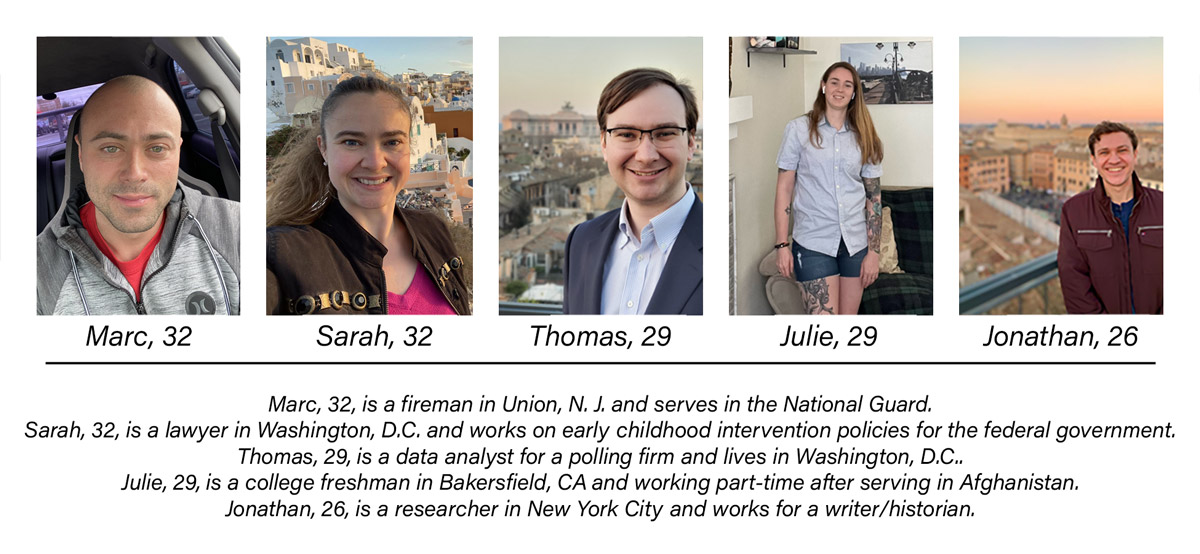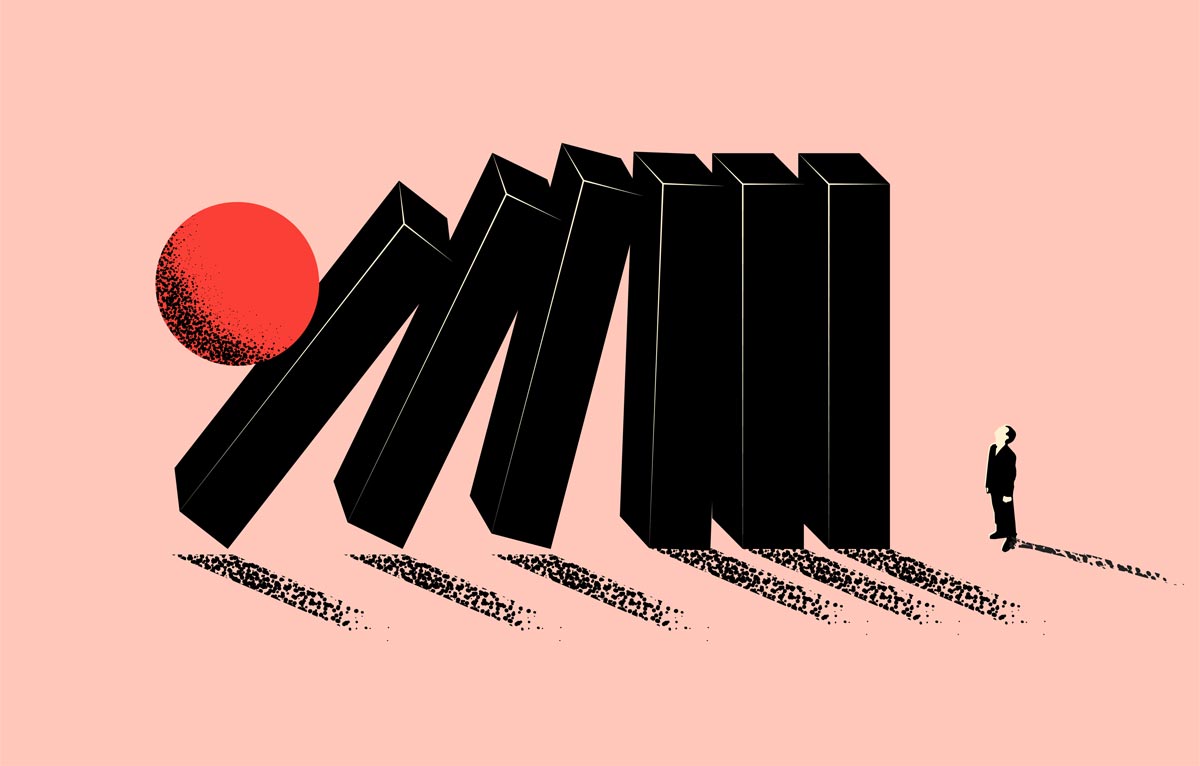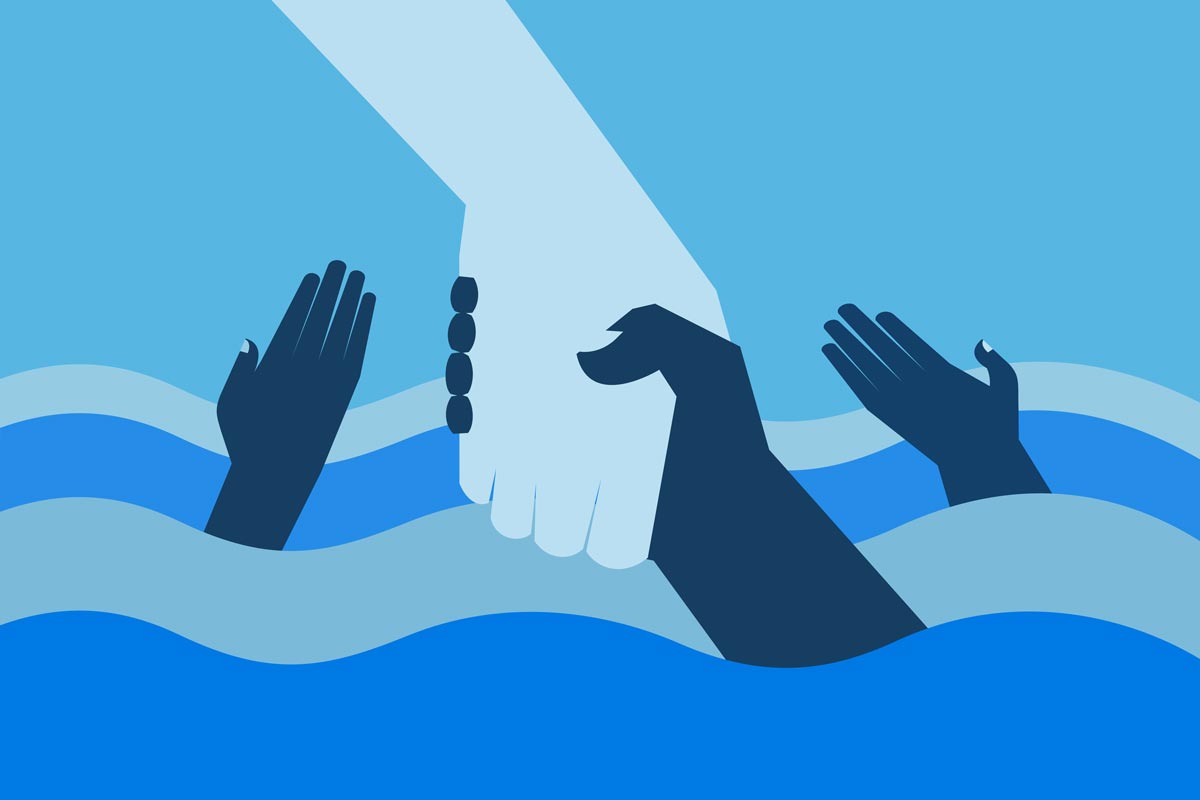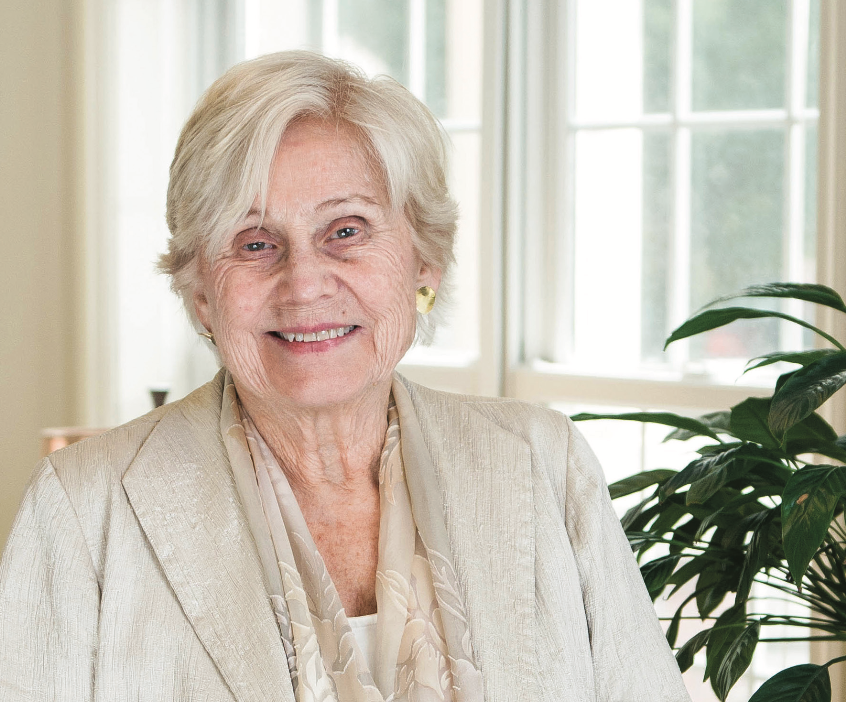I worry about my grandchildren and the world they are facing. I’m aware they’ve experienced huge cultural and societal shifts, economic challenges, political strife, and the fallout from the pandemic that is much different from when I or my children were their age. Instead of fretting in a vacuum, I decided to find out what was on their minds—and see how could I help?
I talked to my older grandchildren, Millennials aged 26 to 32, born between 1981 and 1996 and making up a generation that is 73 million-strong, overtaking Baby Boomers as the largest size generation. I’ll leave the younger grandkids, Generation Z, for another time.
I was curious how my Millennial grandchildren would describe their own generation and how they see the state of the world today. I was not asking so much about their own experience as their generation’s. I also wondered what they think about aging and older people.
I called each one with six questions. My five oldest grandchildren obviously are not a national sample but they have real diversity among them. Echoing national trends, none of them are engaged or married and only Julie has bought a house.
Wow!
I was moved by listening to my grandchildren. I began to understand at a deeper level just how different the young adult experience today is from my own. How much harder it is for them. And just how difficult is for them with all the information available, and all the choices, to make decisions and make commitments.

Below are the six questions I asked each of them and recorded the exact words they gave as answers. I eliminated some words and answers but added no words. I do not identify who said what but I made sure to select comments from all five in every answer.
What words would you use to describe Millennials, your own generation?
Their responses: Disenchanted. Disappointed. Insecure. Searching. Idealistic. Adrift. Treading water, not thriving. Overpromised. Pessimistic especially about climate change. Doomers. We didn’t grow up with the internet. So much information is available now. We grew up with security and the good life seemed possible. Then 9/11 and the 2008 financial crisis changed everything. And then Covid. It takes a long time to find a job. We are slower to progress in our careers and have kids than others. Anxious, everyone has anxiety. We are open about anxiety and treatment.
My thoughts: How we see ourselves, our self-identity, is vital in helping us to make choices. Their responses illustrate their struggles.
What do you Millennials worry about?
Their responses: We worry about getting a job that pays enough so we can buy a house. Renting forever. Sustainability. Money. Debts, how to pay them off. Finding someone to spend our life with. FOMO (fear of missing out). Turbulent world. Everything falling apart. We no longer believe things are progressing. Climate change is scary. It would be cruel to bring children into the world.
My thoughts: Some existential anxiety is normal for every generation, but it’s palpable for this generation.

How would you describe the older generation — -people over 70?
Their responses: You survived so much. Still going. Impressive. Not given up on society. Confident. You made it. You guys pitched right in. You did what’s got to be done. Lots of service in the military. You had opportunities.
You left us with problems. You handed us a raw deal.
Now you are relaxed, watching TV. Having a good time. Now you can’t keep up with the technology. Some of you hold on to sexist and racist beliefs. Some are crabby. Some of us are not excited about spending time hanging out with oldsters. It is like going to church, to be checked off. I don’t mean you, Gran.
My thoughts: I was happy to hear about our fortitude, but not surprised to hear some bitterness and criticism.
How do you think we older people see your generation?
Their responses: You see us as not taking on adult responsibilities. Putting off getting married and buying a home. Not hitting the milestones. Not making decisions. A bit lazy. Entitled. You are baffled by so many gays in our generation. Picky and perfectionistic. A bit spoiled.
My thoughts: It was hard to hear how judgmental we seem.
What do you imagine that we older people worry about?
Their responses: Your health. Your mortality. Worry about being a burden on your kids. Not being at the center of the story. Out of control. Don’t understand how systems work on the internet. The world is frustrating. Things are going in a bad direction. How will the younger generation turn out? Will the younger generations prosper? Is society unraveling?
My thoughts: I was happy to see they are paying attention to their elders.

If you could send a message to all the young people in your generation, what would you say to them?
Their responses: You all were dealt an unfair hand. Don’t feel like a failure, it isn’t you, it’s broader forces. Despair is never the answer. Things will work out. It’s not apocalyptic. Stop catastrophizing. Don’t fall victim to doom.
My thoughts: Hope is key to coping and having the agency to create your future so I was glad to witness it.
* * *
My generation — those born between 1928 and 1945 has usually been called the Silent Generation. I think Lucky Generation is a better term for us. Most of us, but not everyone, have prospered beyond our expectations. We have had opportunities to travel, explore various careers, and be mostly untouched by war. And, now, as grandparents or older relatives of young people, we can say things to them that their parents are unable to say. Millennials are still struggling to be independent of their parents.

5 Ways We Can Help Our Grandchildren
1. We can help them out with material support, money, for things like down payments, and support for schooling.
2. We can help young people understand that many of the difficulties they face are not their fault. We do not see them as lazy or spoiled. And we can express our confidence that they will survive, the world will survive.
3. We must share our wisdom. We need to let young people know that it wasn’t all easy for us, either. Anyone who lives to 70 or 80 has faced serious problems and major losses. Young people want to learn how we survived hard times and crises.
4. We need to listen to young people. Then be silent. Most young people do not need advice as much as listening. As a psychologist, I know listening can be transformative.
5. And we must keep connecting to the young generation. Not waiting for them to call us. Taking the initiative. Calling them. We can show them we will be there by being there.
P.S. These interviews were a great way to learn a lot about my own grandkids and to get closer to them. Let me know what you learn.
#grandchildren #family #society #eightysomethings #agingwell #life


